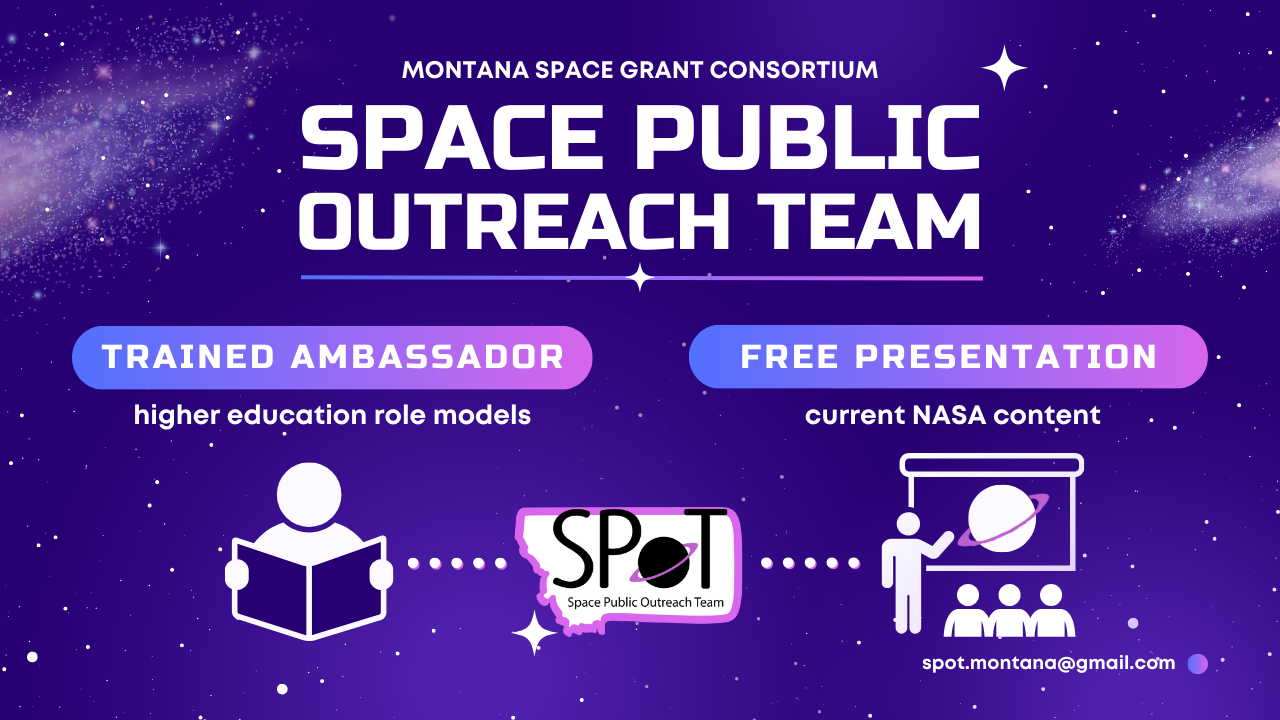Space Public Outreach Team (SPOT)
Connecting trained SPOT ambassadors with Montana educators.

SPOT Overview
The Space Public Outreach Team (SPOT) provides FREE presentations about current NASA missions and research to Montana schools, youth programs, and community groups. These presentations are given by certified SPOT ambassadors.
This year's presentation is called "Black Holes: Monsters of the Universe".
Ambassadors
Higher education students are provided professional training to be certified in presenting on current NASA content with guidance from the STEM graduate student managers. Through this program, SPOT ambassadors utilize unique NASA content to deliver interactive presentations to Montana Students. These ambassadors become inspirational STEM role models for K-12 students and teachers.
Educators
SPOT is designed for Montana Educators! By requesting a SPOT presentation, educators can bring a free presentation to their students. This is available for any form of education, from school classrooms, to youth programs, events, community groups and more. SPOT brings space education to you.
Participating educators will receive NASA related activities, brochures and other materials they can use in their classrooms.
Presentations
The interactive SPOT presentations utilize slides, videos, animations, and an inquisitive approach to relay the excitement of new discoveries in space science. NASA research and careers here in Montana are highlighted in each show. Presentations can be done in a classroom or assembly setting, as long as a screen or blank wall and an electrical outlet are available. Each show lasts approximately 45 minutes.
Example of a SPOT Presentation
The video below shows a SPOT presentation from the year 2020. The presentation was entitled "The Dark Side of the Universe" and explored the nature of dark matter in the universe.
Comprehension Questions
- What kind of light do doctors use to take pictures of your bones?
- How different does Jupiter look in different types of light?
- What force keeps our solar system together?
- What is more dense, a rock the size of your hand or a pillow?
- Will our sun become a black hole one day?
- Which is heavier, a spoonful of our sun or a spoonful of a neutron star?
- True or false: we can detect gravitational waves from colliding black holes?
- Montana State University helped discover gravitational waves using what instrument?
- True or false: we can see most of the matter in the universe.
- What do galaxies need to keep from flying apart?
- What is your favorite thing you learned from the video?
Questions?
Email the SPOT Managers at spot.montana@gmail.com
